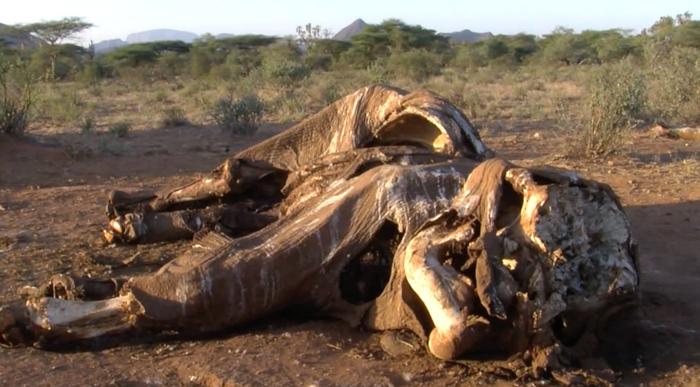Written by: The Environmental Investigation Agency
New evidence of Japan’s failure to control illegal ivory trading at a time when Africa’s elephants face extinction is revealed in a damning report.
The report from the Washington, D.C.-based nonprofit Environmental Investigation Agency (EIA) reveals the identities of four Japanese ivory trading companies that offered to sell elephant tusks to undercover investigators for illegal export to China. The report, titled The Dirty Secrets of Japan’s Illegal Ivory Trade, also documents a 20-year history of broken commitments by Japan to enact effective controls to prevent poached tusks from being sold domestically or for illegal export.
The report follows shocking new elephant census data revealing a 30% decline from 2007 to 2014 in populations in 15 of 18 African nations surveyed. This amounts to an unsustainable 8% annual decline from intensive ivory poaching, which threatens the species’ long term survival.
EIA’s report is released as a critical meeting of 183 nations Party to the UN Convention on International Trade in Endangered Species (CITES) is underway in Johannesburg, South Africa. Major proposals from Kenya and nine other African elephant range states, and one from the United States, aim to close domestic ivory markets of Japan and other Parties to help protect Africa’s elephants.
“Japan’s efforts to promote continued ivory trade while opposing the domestic ivory ban proposals is a slap in the face to the 29 African states seeking to end domestic ivory trade to protect their elephants ” said Allan Thornton, president of EIA. “It’s time for Japan to join the global efforts to protect elephants and to permanently ban its domestic ivory trade.”

The EIA report, The Dirty Secrets of Japan’s Illegal Ivory Trade, reveals:
– The identities and undercover video of four Japanese ivory companies that admitted to EIA investigators to conducting daily ivory sales to Chinese buyers and boasted of the vast amounts of ivory being illegally exported to China and Hong Kong.
– 30 of 37 Japanese ivory traders contacted by an undercover investigator offered to engage in some form of illegal activity to buy, sell, or fraudulently register a tusk that did not qualify for registration.
– Most of Japan’s ivory tusk imports dating from before the 1989 ban on international trade in elephant ivory were from poached elephants. As a result, the government’s tusk registration scheme is effectively a tool for granting amnesty to large quantities of pre-1989 poached ivory
– An influential report by the wildlife trade monitoring group, TRAFFIC, supporting Japan’s 1997 bid to reopen ivory trade found that Japan could not control ivory trade, but the conclusions were amended and supported Japan’s successful bid to reopen ivory trade.

The EIA report also reveals that, since 1997, Japan has consistently failed to enact CITES commitments to:
– Verify the legality of origin and acquisition of ivory tusks presented for registration, thereby enabling poached tusks to be legalised onto the domestic market with the widespread use of fraudulent declarations.
– Require registration and marking of cut ivory pieces over 1kg and 20cm in height or larger, making it impossible to track the trade chain of ivory.
– Enact “demonstrably effective” controls over worked ivory.
– Control unregistered ivory traders selling large amounts of ivory online shopping and auction sites like Yahoo! Japan and Rakuten Ichiba.
– Prevent illegal export of ivory to China, Thailand, and other nations.
“EIA investigations and research over the past 18 months demonstrate that Japan’s ivory control system is plagued by loopholes and undercut by weak legislation to such an extent that no meaningful control exists at even the most basic level,” said Danielle Fest Grabiel, EIA Wildlife Senior Policy Analyst.

To comment on this story: Login (or sign up) to our app here - it's a troll-free safe place 🙂.![]()








